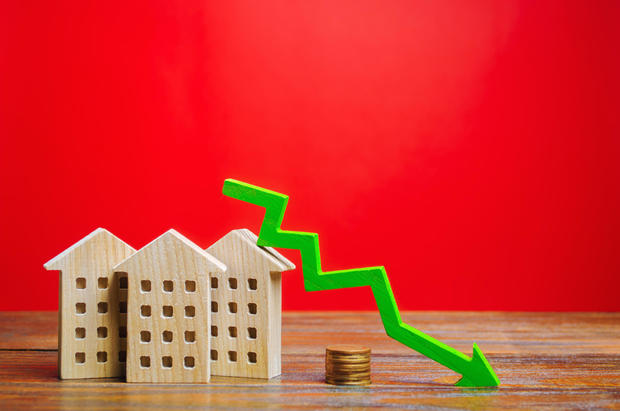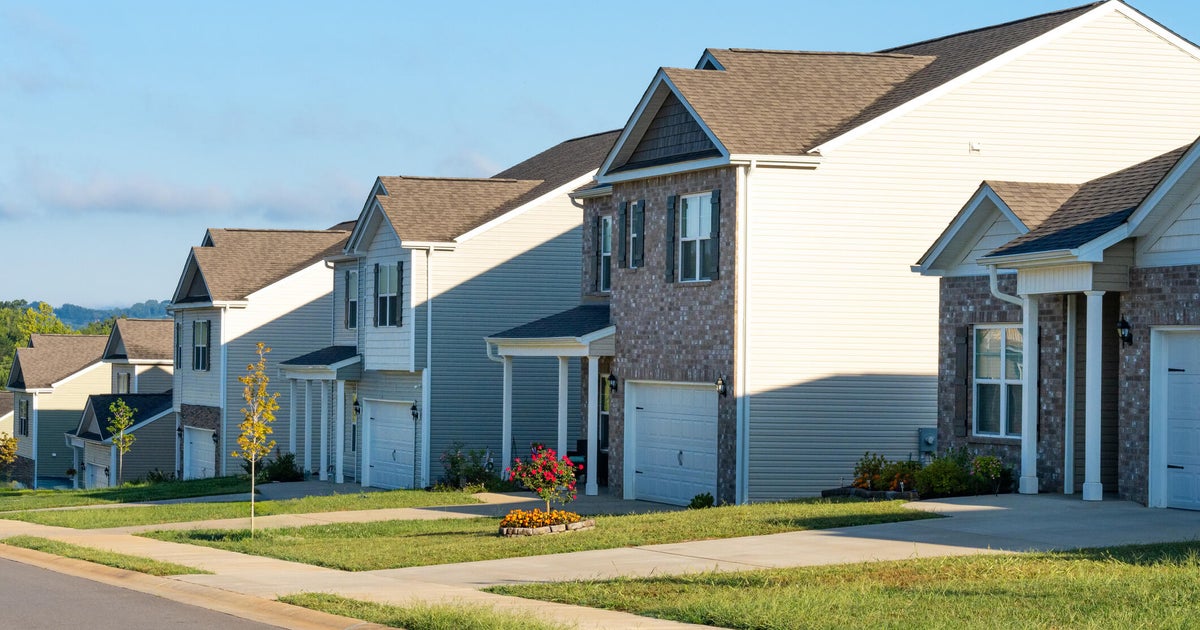Mortgage rates plunge to 2-year low: Should you lock a rate now?
For the last few years, potential homebuyers have faced a mix of housing market challenges, including elevated mortgage rates, high home prices and low for-sale inventory. After the pandemic housing boom, mortgage rates soared, making it much harder for buyers to afford homes, the majority of which had already climbed in price. Coupled with limited housing stock, many prospective buyers were forced to delay their homeownership dreams or stretch their budgets to uncomfortable levels.
However, the landscape is starting to change. Inflation is now closing in on the Federal Reserve's target rate of 2%, and today, the Fed issued a half a percentage point rate cut in response to the improving economic landscape. Anticipation of that cut already had a positive effect on mortgage rates, which are now sitting at 6.15%, according to the Mortgage Bankers Association. That's the lowest point for mortgage rates since September 2022.
With mortgage rates trending downward, buyers who have been sitting on the sidelines may feel more optimistic about reentering the housing market. But the question remains: Should buyers lock in these newly lower rates, or should they hold out for even better rates down the line?
Don't miss out on your opportunity to lock in a low mortgage rate. Compare your options now.
Should you lock in a mortgage rate now?
The decision to lock in a mortgage rate is a significant one, but the current market conditions present a compelling case for doing so. For starters, today's rates represent a substantial improvement from the nearly 8% rates from late 2023. This dramatic decrease translates to significant savings over the life of a loan, potentially making homeownership more attainable.
And while current rates may seem elevated compared to the record lows seen during the pandemic, they are still relatively low from a historical perspective. Throughout much of the 1980s, for example, mortgage rates frequently exceeded 10%, making today's rates appear quite favorable in comparison.
Further Fed rate cuts are also expected in the coming months, but the timing and extent of these cuts are uncertain. The mortgage market is also influenced by various factors beyond just the Federal Reserve's actions, and waiting for lower rates is essentially a gamble, as there's always the risk that rates could unexpectedly rise due to unforeseen circumstances.
Another factor to consider is the potential for increased competition if rates continue to fall. Lower rates tend to draw more buyers into the market, which could lead to bidding wars and drive up home prices. By locking in a rate now, though, you can potentially avoid this increased competition and secure a home at current prices before any potential upticks.
Locking in a rate now also provides a sense of certainty in an otherwise uncertain market. It allows you to move forward with your home purchase plans with a clear understanding of your monthly mortgage payments. This certainty can be particularly valuable in a market where home prices and inventory levels continue to fluctuate.
Find out what today's top mortgage loan rates are here.
How to find the best mortgage rate possible today
If you've decided to lock in a mortgage rate at today's low levels, the next step is ensuring you find the best possible rate available. While rates have dropped, they can still vary significantly between lenders, so start by getting pre-approved with multiple lenders to compare their rates and terms.
You should also be mindful of the fees associated with securing a mortgage. Origination fees and closing costs can all add up, so it's essential to look at the annual percentage rate (APR) rather than just the interest rate, which provides a more comprehensive picture of the loan cost, factoring in additional fees.
Another option to consider is whether to buy mortgage points to lower your rate even further. Mortgage points are essentially upfront fees paid to reduce your interest rate. If you plan to stay in the home for a long time, this could be a worthwhile investment, as the lower rate will save you money over the life of the loan.
Timing is also crucial when shopping for a mortgage. Rates can fluctuate daily or even multiple times a day based on market conditions, so it's important to monitor the market closely and act quickly if you see a favorable rate.
The bottom line
Today's lower mortgage rates present a unique opportunity for potential homebuyers to lock in an affordable rate on a mortgage loan — but doing so won't be the right move for everyone. It's important to carefully consider your options, and if you determine that locking in a mortgage rate is right for you, be sure to employ the strategies outlined above to secure the best possible rate. That way, you can take full advantage of this favorable shift in the market and move closer to achieving your homeownership goals.






